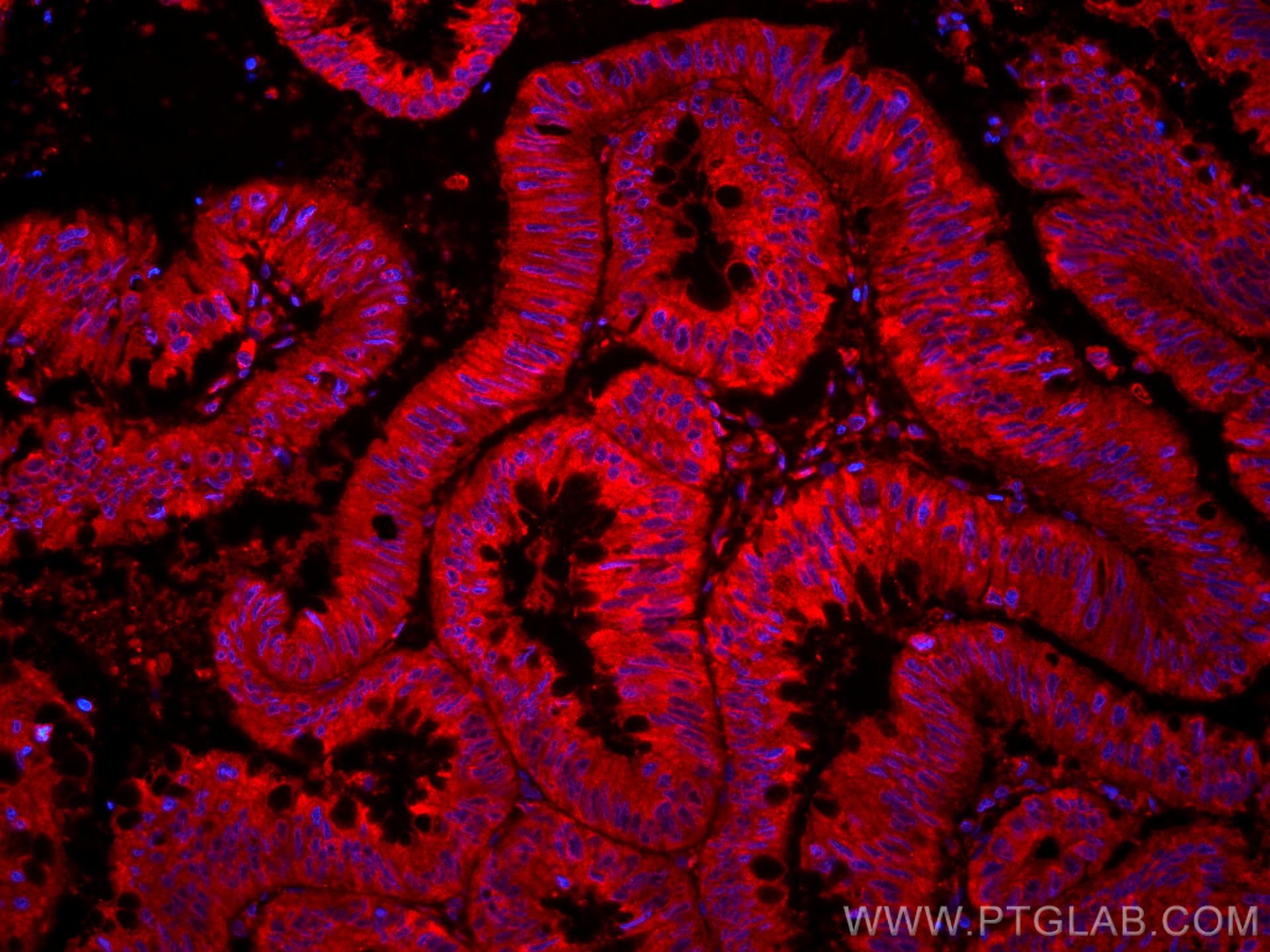ST6GALNAC6 Monoklonaler Antikörper
ST6GALNAC6 Monoklonal Antikörper für IF-P
Wirt / Isotyp
Maus / IgG1
Getestete Reaktivität
human, Maus
Anwendung
IF-P
Konjugation
CoraLite®594 Fluorescent Dye
CloneNo.
1A7B7
Kat-Nr. : CL594-66209
Synonyme
Geprüfte Anwendungen
| Erfolgreiche Detektion in IF-P | humanes Kolonkarzinomgewebe |
Empfohlene Verdünnung
| Anwendung | Verdünnung |
|---|---|
| Immunfluoreszenz (IF)-P | IF-P : 1:50-1:500 |
| It is recommended that this reagent should be titrated in each testing system to obtain optimal results. | |
| Sample-dependent, check data in validation data gallery | |
Produktinformation
CL594-66209 bindet in IF-P ST6GALNAC6 und zeigt Reaktivität mit human, Maus
| Getestete Reaktivität | human, Maus |
| Wirt / Isotyp | Maus / IgG1 |
| Klonalität | Monoklonal |
| Typ | Antikörper |
| Immunogen | ST6GALNAC6 fusion protein Ag8358 |
| Vollständiger Name | ST6 (alpha-N-acetyl-neuraminyl-2,3-beta-galactosyl-1,3)-N-acetylgalactosaminide alpha-2,6-sialyltransferase 6 |
| Berechnetes Molekulargewicht | 333aa,38 kDa; 374aa,41 kDa |
| Beobachtetes Molekulargewicht | 38-42 kDa |
| GenBank-Zugangsnummer | BC007802 |
| Gene symbol | ST6GALNAC6 |
| Gene ID (NCBI) | 30815 |
| Konjugation | CoraLite®594 Fluorescent Dye |
| Excitation/Emission maxima wavelengths | 588 nm / 604 nm |
| Form | Liquid |
| Reinigungsmethode | Protein-G-Reinigung |
| Lagerungspuffer | PBS with 50% glycerol, 0.05% Proclin300, 0.5% BSA |
| Lagerungsbedingungen | Bei -20°C lagern. Vor Licht schützen. Nach dem Versand ein Jahr stabil. Aliquotieren ist bei -20oC Lagerung nicht notwendig. 20ul Größen enthalten 0,1% BSA. |
Hintergrundinformationen
ST6GALNAC6 is a sialyltransferase which is responsible for the synthesis of all a-series gangliosides. It has a broad expression pattern. ST6GALNAC6 was reported to be a key enzyme in the synthesis of disialyl monosialyl Lewis (Lea), a representative tumor-associated antigen in cancers of the pancreas and colon.
Protokolle
| PRODUKTSPEZIFISCHE PROTOKOLLE | |
|---|---|
| IF protocol for CL594 ST6GALNAC6 antibody CL594-66209 | Protokoll herunterladen |
| STANDARD-PROTOKOLLE | |
|---|---|
| Klicken Sie hier, um unsere Standardprotokolle anzuzeigen |


